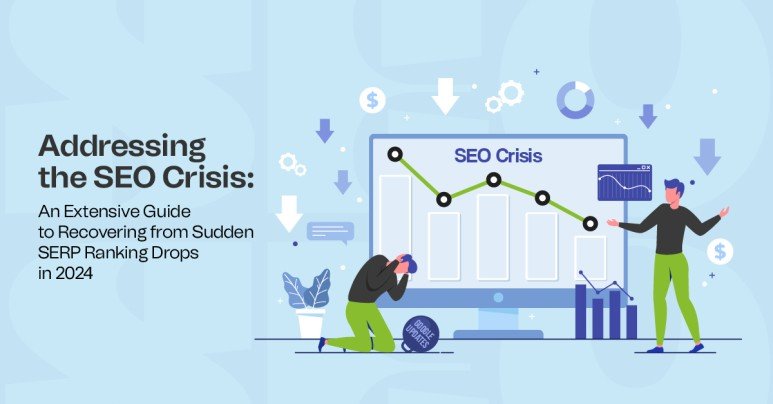Every website owner dreads the downward spiral of SEO ranking drops, considering the potential financial setbacks they entail. When your rankings take a hit, it's a double blow—not only does it diminish your ability to draw organic traffic, but it also renders the resources you invested in creating content seemingly futile.
To avert this scenario, we've meticulously curated a comprehensive guide for handling SEO ranking drops in 2024. This guide is designed to furnish you with practical steps to tackle a dip in rankings across your web pages. While losing a significant ranking position is disheartening, implementing strategic changes can pave the way for recovery and potentially secure even higher rankings than before.
Several factors can trigger a decline in SERP rankings, ranging from recent Google algorithm updates like the Link Spam Update to indexing errors, lost backlinks, and alterations in website structure. Pinpointing the exact cause behind a ranking drop can be challenging due to various potential reasons.
Within this guide, we'll delve into the most prevalent issues impacting rankings, providing insights and solutions to empower you as an expert in recovering SEO rankings.
Understanding the Reasons Behind the Drop in SERP Rankings
Page Loading Speed
Failing to meet Google's Core Web Vitals test may lead to a decline in rankings. Sluggish loading times not only affect rankings but also impact bounce rates and user engagement. Ensuring swift page loading is essential; tools like Google's Page Speed Insights can evaluate loading times and recommend improvements such as image compression, browser caching, and code minimization.
Keyword Trends
Changes in keyword popularity can significantly affect rankings. Keywords associated with trending topics or short-lived trends may experience a decline in popularity over time. Using tools like our free keyword planner from The HOTH, which tracks keyword trends, allows you to identify alternative keywords with decent search volumes.
Domain and Hosting Issues
Inactive domains or expired hosting plans can cause a website to disappear entirely from search results. Checking the website's functionality is crucial when facing unexplained ranking drops, ensuring no domain expiration or hosting-related issues are at play.
Robots.txt File
An improperly formatted robots.txt file may hinder search engine crawlers from accessing crucial web pages. Ensuring proper access permissions in this file is vital for effective crawling and indexing, particularly for larger websites with a significant number of URLs.
Competitor Outranking
Competitors with stronger backlink profiles, higher-quality web pages, and better user experiences might surpass your content in rankings. Analyzing competitors' strategies can help identify areas for improvement to regain lost rankings.
Backlink Profile
Losing high-authority backlinks or acquiring spam my ones can drastically impact rankings. Regularly monitoring and maintaining a healthy backlink profile is essential for sustaining rankings.
Google Algorithm Updates
Frequent updates in Google's algorithm can bring about sudden ranking changes. Staying informed about these updates and adapting your website accordingly is crucial to mitigating their impact on rankings.
On-page SEO Factors
Optimizing on-page elements like content length, keyword usage, and meta tags is pivotal. Thin content, over-optimization, or under-optimization of keywords can negatively affect rankings.
Crawling/Indexing Errors
Ensuring that important web pages are successfully crawled and indexed is essential. Using tools like Google Search Console aids in identifying indexing errors that might affect visibility in search results.
HTTP Status Codes
Checking for HTTP status codes, such as 404 errors or broken redirects, helps identify issues causing pages to lose visibility in search results.
Understanding and addressing these issues can aid in diagnosing and resolving SEO ranking drops effectively. Regular monitoring and proactive adjustments are key to maintaining a healthy and visible online presence.





